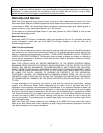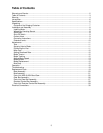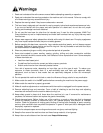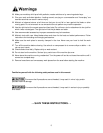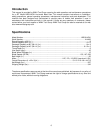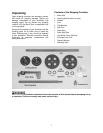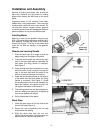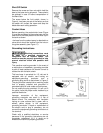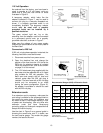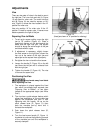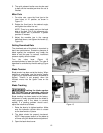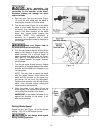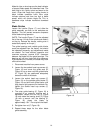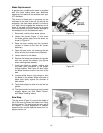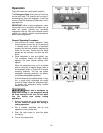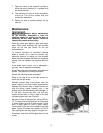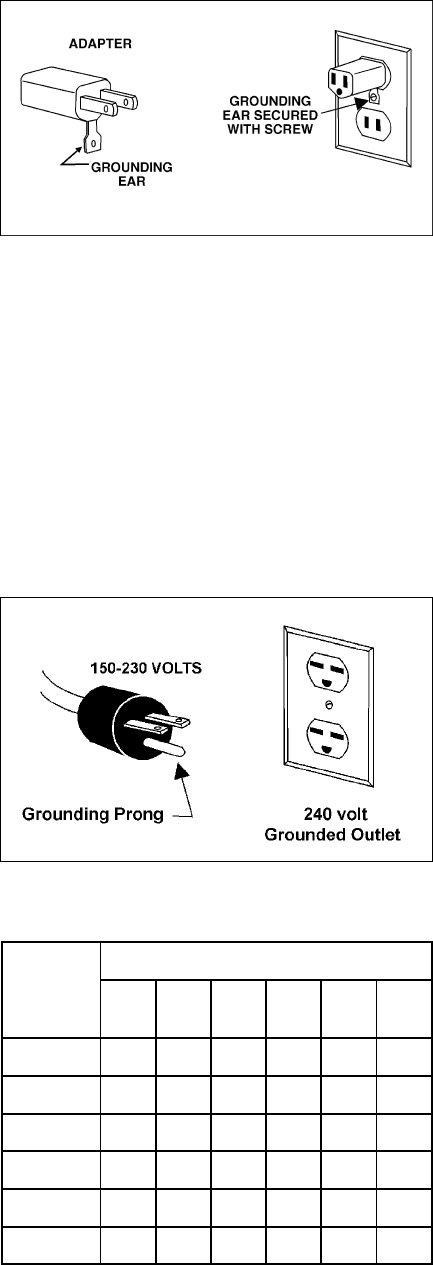
10
115 Volt Operation
As received from the factory, your band saw is
ready to operate at 115 volt power, using an
outlet and a plug that look similar to those
illustrated in Figure 6.
A temporary adapter, which looks like the
adapter illustrated in Figure 7, may be used to
connect this plug to a two-pole receptacle as
shown, if a properly grounded outlet is not
immediately available. The temporary adapter
should only be used until a properly
grounded outlet can be installed by a
qualified electrician.
The green colored rigid ear, lug or tab,
extending from the adapter must be connected
to a permanent ground such as a properly
grounded outlet box, as shown in Figure 7.
Make sure the voltage of your power supply
matches the specifications on the motor plate of
the Band Saw.
Conversion to 220 Volt
If 220 volt, single phase operation is desired, the
following instructions must be followed:
1. Disconnect machine from power source.
2. Open the electrical box and change the
position of the fuse from the 115V slot to the
220V slot. An electrical drawing is included
inside the electrical box, and is also shown
on page 31 of this manual.
3. The 115V attachment plug supplied with the
band saw must be replaced with a UL-listed
plug suitable for 220 volt operation. The
band saw must comply with all local and
national codes after the 220 volt plug is
installed. The band saw with a 220 volt plug
should only be connected to an outlet
having the same configuration (Figure 8).
No adapter is available or should be used
with the 220 volt plug.
Extension cords
If an extension cord is necessary, make sure the
cord rating is suitable for the amperage listed on
the machine’s motor plate. An undersize cord
will cause a drop in line voltage resulting in loss
of power and overheating. Use only three wire
extension cords that have three-prong
grounding plugs and three-pole receptacles that
accept the machine’s plug.
Use the chart in Figure 9 as a general guide in
choosing the correct size cord. If in doubt, use
the next heavier gauge. The smaller the gauge
number, the heavier the cord.
Figure 7
Figure 8
Recommended Gauges (AWG) of Extension Cords
Extension Cord Length *
Amps
25
feet
50
feet
75
feet
100
feet
150
feet
200
feet
< 5 16 16 16 14 12 12
5 to 8 16 16 14 12 10 NR
8 to 12 14 14 12 10 NR NR
12 to 15 12 12 10 10 NR NR
15 to 20 10 10 10 NR NR NR
21 to 30 10 NR NR NR NR NR
*based on limiting the line voltage drop to 5V at 150% of the
rated amperes.
NR: Not Recommended.
Figure 9



